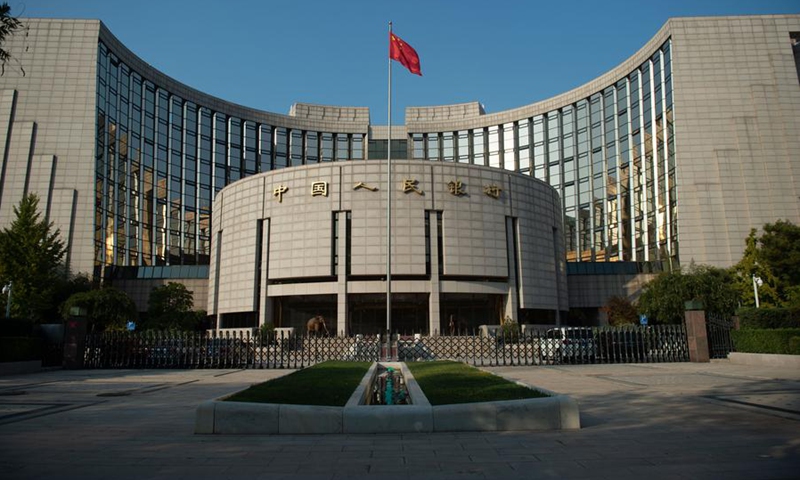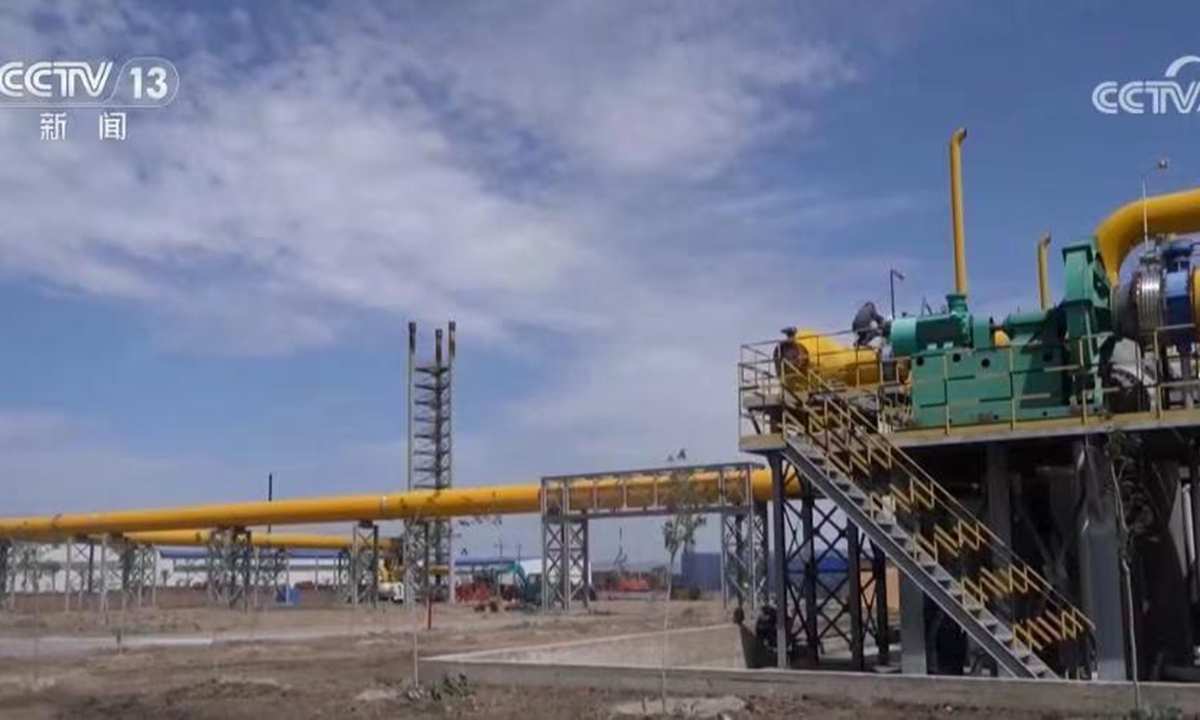

A view of the Lujiazui area in Shanghai, East China Photo: VCG
In recent years, the complex global political and economic situation has created persistent uncertainty that continues to affect the market, particularly the foreign exchange market. In this context, some foreign investment institutions often exaggerate the impact of normal fluctuations of Chinese yuan's exchange rate.
For instance, during a recent period of rapid yuan appreciation, some overseas institutions claimed that a wave of currency conversions would lead to further appreciation. Conversely, during periods of depreciation, those institutions would like to cast doubt on China's economic prospects.
However, it is important to approach and interpret the normal two-way fluctuations of the yuan, along with the economic impact, from a rational perspective.
The fluctuation of the yuan's exchange rate against other currencies is normal and is influenced by a variety of factors. Throughout different periods and in response to varying economic, policy and market conditions - both domestic and international - it is common for the yuan's exchange rate to experience either appreciation or depreciation.
It is logical to allow these fluctuations to reflect the fundamentals of the economy and the balance of international payments. China has basically achieved a market-oriented formation and floating mechanism for the yuan's exchange rate, with significant enhancement in exchange rate flexibility, playing the role of an automatic stabilizer in the balance of payments.
The yuan is also one of the most stable currencies among major international currencies. It's necessary to evaluate the yuan not only in relation to the US dollar but also against the China Foreign Exchange Trade System currency basket. This broader perspective provides a more accurate reflection of the yuan's exchange rate.
And, the impact of the yuan exchange rate's two-way fluctuations on the economy has two sides. Taking the foreign trade sector as an example, the appreciation of the yuan has a certain negative impact on industries and enterprises that incur costs domestically while targeting overseas markets, leading to an increase in export prices and a weakening of competitiveness. However, for some industries and enterprises that have both costs and markets abroad, it helps reduce the import costs.
The impact of yuan appreciation on foreign trade pertains to the magnitude and volatility of the appreciation. If the yuan's exchange rate fluctuates within a small range over a period of time, the impact on foreign trade enterprises' orders, profits and expectations will be small, which is beneficial for cross-border trade.
Since 2005, China has continuously deepened the market-oriented reform of the yuan, with the yuan exchange rate formation mechanism primarily determined by market supply and demand. In recent years, China has been promoting high-level opening-up, deepening the reform and opening-up of its financial sector, and making continuous progress in the internationalization of the yuan. The role of the yuan in cross-border payment and settlement, investment and financing, and as a store of value has been rising, and the attractiveness of yuan-denominated assets has been steadily growing.
As the world's second-largest economy, China is experiencing a steady economic recovery, with resilient foreign trade and orderly two-way cross-border capital flows. The balance of international payments is stable and foreign exchange reserves remain above $3.2 trillion, ranking first in the world. With a shift in overseas monetary policy, the foundation for a stable yuan exchange rate is solid.
In light of the increasingly complex global political and economic landscape - including an unclear policy outlook for major developed economies, diverging global central bank policies, the upcoming US election and geopolitical conflicts, leading to significant volatility in the global foreign exchange market - it is essential for China to address irrational expectations and behaviors that diverge markedly from domestic market fundamentals. By doing so, China can help prevent erratic fluctuations in the foreign exchange market that would negatively affect international trade and investment activities.
The author is an economist with China Everbright Bank. bizopinion@globaltimes.com.cn



